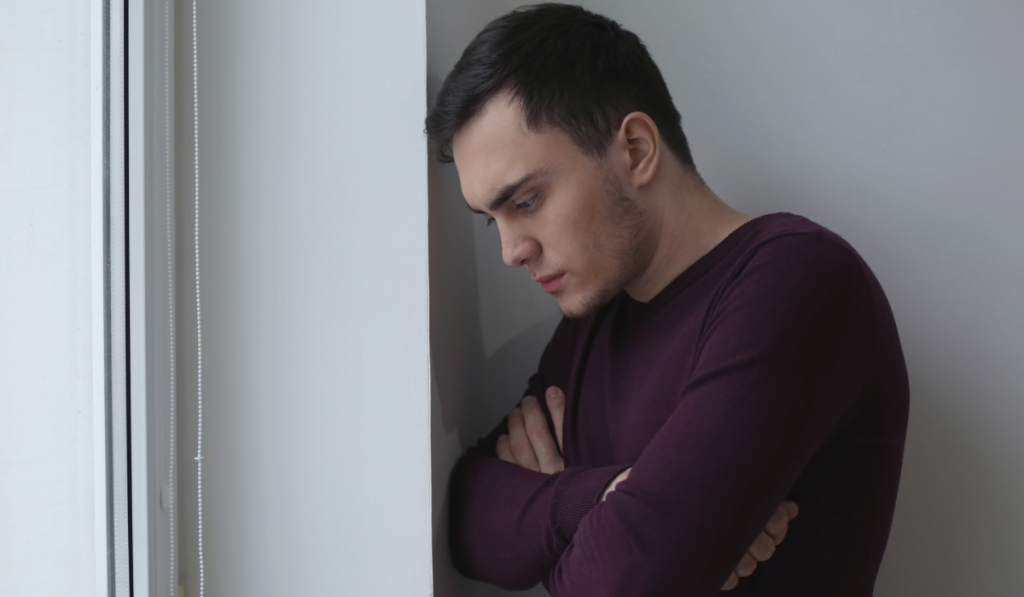
The Connection Between Sports and Depression: How It Impacts Athletes, Parents, Coaches, and Fans
October 7, 2025
Understanding Experiential Therapy: A Hands-On Approach to Healing
October 21, 2025
Depression is far more than a fleeting sense of sadness or disinterest—it’s a complex mental health condition that can influence nearly every aspect of a person’s life. From the way you think and act to how your body feels and functions, the effects of depression reach deep into both the mind and body. Understanding these impacts can help shed light on why depression is such a challenging disorder and why seeking professional support is essential for recovery.
Mental and Emotional Effects of Depression
At its core, depression primarily affects the brain. This is where the condition begins to disrupt mood regulation, cognitive function, and emotional balance. But how does depression affect the brain exactly?
Research has shown that depression alters the brain’s chemistry and structure. Key areas, such as the hippocampus, amygdala, and prefrontal cortex, can shrink or become less active, which can affect memory, emotional processing, and decision-making. The hippocampus, which plays a major role in learning and memory, often shows reduced activity in people with chronic depression—offering insight into why many wonder, “Does depression affect memory?” The answer is yes. Depression can make it difficult to concentrate, retain information, and recall details, contributing to forgetfulness and a sense of mental “fog.”
Beyond these cognitive changes, depression distorts thinking patterns. People struggling with the disorder may experience persistent negative thoughts about themselves, others, or the future. They may become fixated on feelings of guilt, worthlessness, or hopelessness. Over time, these mental effects reinforce the cycle of depression, making it increasingly difficult to see beyond the pain.
Behavioral Effects of Depression
The behavioral effects of depression often reflect the internal struggle a person is facing. For some, this shows up as acting out—becoming irritable, short-tempered, or engaging in risky or self-destructive behaviors such as substance use, overspending, or impulsive decisions. For others, depression leads to the opposite reaction: a complete emotional and physical shutdown.
When depression causes someone to withdraw, they may lose interest in hobbies, isolate from friends and family, or struggle to maintain work or school responsibilities. This withdrawal often stems from deep exhaustion and a lack of motivation. Even simple tasks—like getting out of bed, cooking a meal, or responding to messages—can feel overwhelming.
Both patterns—acting out and shutting down—have their own consequences. Acting out may temporarily distract from emotional pain, but can lead to guilt, strained relationships, and further isolation. Shutting down, meanwhile, deprives individuals of meaningful connection and physical activity, deepening the depressive cycle. Each response takes a toll on mental and physical health, reinforcing feelings of helplessness and fatigue.
Physical Effects of Depression
While depression is often thought of as a mental illness, the physical effects of depression can be just as profound. The body and mind are deeply interconnected, meaning emotional distress can manifest in physical ways.
Common physical symptoms of depression include:
Chronic fatigue – Even with adequate sleep, people may feel drained or sluggish due to changes in brain chemistry and disrupted sleep cycles.
Sleep disturbances – Some experience insomnia, while others oversleep. Neither pattern allows for restorative rest.
Appetite and weight changes – Depression can suppress appetite or trigger emotional eating, leading to significant weight fluctuations.
Muscle aches and headaches – Increased tension and inflammation in the body can cause pain that has no clear medical explanation.
Weakened immune system – Ongoing stress hormones, like cortisol, can weaken immune response, making the body more susceptible to illness.
Depression also affects the nervous system, contributing to slower reaction times and impaired coordination. Over time, these physical symptoms can amplify emotional distress, leaving individuals trapped in a painful feedback loop.
When Depression Takes Over the Body and Mind
To truly understand the effects of depression, it’s important to recognize how it simultaneously influences behavior, thought, and physical well-being. When a person acts out, the body often stays in a heightened state of stress—heart rate and blood pressure rise, muscles tense, and sleep becomes disrupted. This state of hyperarousal drains energy reserves, worsening fatigue and irritability.
On the other hand, when someone shuts down, the body slows. Energy levels drop, movement decreases, and the immune system weakens. The brain, deprived of stimulation and social connection, becomes more prone to negative thought loops. Both responses, though opposite in behavior, perpetuate the same cycle of exhaustion and hopelessness.
In both cases, the individual’s sense of self often begins to erode. Depression makes it difficult to experience pleasure, pride, or motivation—three critical components for maintaining mental health. The more these feelings fade, the harder it becomes to break free from the disorder’s grip.
Healing from the Inside Out
Breaking the cycle of depression requires a holistic approach—one that addresses both the mental and physical effects. Psychotherapy, such as cognitive-behavioral therapy (CBT), can help reframe negative thought patterns and enhance coping mechanisms. Medications, when prescribed appropriately, can help regulate brain chemistry and restore balance.
Equally important are lifestyle factors: regular movement, proper nutrition, and consistent sleep. Movement, for instance, stimulates the release of endorphins and can help the brain rebuild the neural pathways affected by depression. Building social connections and engaging in activities that bring meaning can also help reignite a sense of purpose and belonging.
The Takeaway
Depression is not simply “feeling sad.” It’s a deeply rooted condition that alters how the brain works, how the body feels, and how a person behaves. The behavioral effects of depression may cause withdrawal or impulsivity, while the physical effects of depression can include chronic fatigue, pain, and changes in sleep or appetite. Understanding how depression affects the brain—including the answer to “Does depression affect memory?”—can help individuals recognize the need for compassionate, comprehensive care.
If you or someone you know is struggling with the effects of depression, know that healing is possible. With the right support, treatment, and patience, both the mind and body can recover balance—and life can begin to feel full again.



